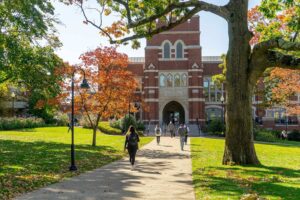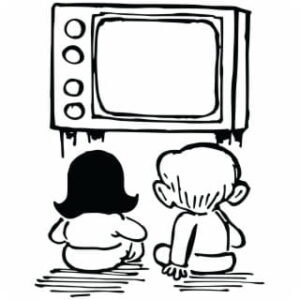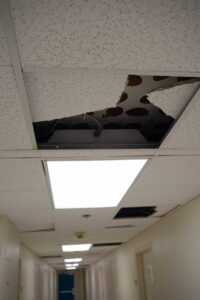Tag: Joshua Chlebowski ’21
Tangents & Tirades
by Andrea Traietti on February 27, 2020
Opinion
Mandatory out-of-Class Events
It is not unusual to find courses that incorporate immersive learning experiences corresponding to course material here at Providence College.
However, requiring students to attend these events outside of their regular course hours oversteps boundaries and creates unnecessary burdens for students, especially if the dates of these events are not announced until the first day of class.
The interim periods between semesters are times where families make plans and solidify dates when students may return home or be attending a family function, which means it is the professor’s responsibility to notify students of any external obligations as soon as they are determined.
The second issue with these requirements comes from the fact that students already dedicate at least two and a half hours per class each week, and piling additional hours of mandatory-attendance events detracts from a student’s quality of work for other courses.
Whether it is a film screening or attendance at a museum tour, professors should be taking into account how long these obligations are and reducing course sessions as appropriately to demonstrate a basic recognition that their course is not the only one students are taking.
There is nothing wrong with having students in a film class take time to go and attend a screening, or having students studying a certain style of painting to visit a museum. But visits and requirements can quickly accumulate, and if they are to be used effectively, they must accompany some form of a reduction in course meeting times for that week.
—Joshua Chlebowski ’21

Mid-Semester Course Evaluations
Students at Providence College are well-acquainted with the concept of exams at midterms, but perhaps PC should consider another kind of evaluation at the mid-point of the semester: teacher evaluations.
At the end of each semester, students are required to fill out an evaluation for each class they take, which requires them to provide feedback about teaching style, class content, use of technology in the classroom, and other individualized aspects of each course.
Last semester, PC made a change to the way course evaluations are collected, switching over from a Scantron-style form on paper to an online version. As the College continues to improve its collection of student feedback, it should consider encouraging professors to gather student perspectives at the middle of the semester, not just the end.
Student feedback is a critical component of making improvements to curricula and courses, and it is a positive thing that PC takes the collection of this information so seriously.
However, collecting feedback only at the end of each semester means that changes and improvements can only be made the next time that professor teaches that specific class. In some cases, that might not be for another six months or another year.
Furthermore, while it is helpful that feedback at the end of the semester might make the course a more enjoyable experience for future students, it does nothing to help the students who are actually in the class currently.
By asking for student feedback in the middle of the semester, either verbally or written out, professors can open a line of communication with their students, and in some cases, make much-needed changes to make the second half of the semester more effective and enjoyable for students and professors alike.
—Andrea Traietti ’21
No More PC Cash
Do you remember the days when you could purchase tickets for Providence College sponsored events without going through the hassle of adding PC Cash to your account? I sure do.
The College in recent years has switched to a system of only allowing students to pay for tickets using PC Cash, for reasons unbeknownst to the students.
The school provides kiosks in some locations for adding PC Cash, although these only take cash—which in and of itself is becoming an outdated concept. The school also offers the option of using a credit card online to add sums of money, but such a transaction includes a one dollar fine.
What is this dollar going towards? Is it really necessary considering the school allows students to use cash in other locations and does not charge them for doing so? Do students not give enough money to this institution as it is?
Not only is the act of having to put PC Cash on one’s account before purchasing a ticket inconvenient, but it is also altogether unnecessary given that students used to simply be able to go up to the ticket window and purchase whatever they pleased.
In sum, PC should return to the method of purchasing tickets only through the ticket window, with no caveats.
—Savannah Plaisted ’21

Picking up after Yourself: A Small Act with a Big Impact
by Andrea Traietti on February 13, 2020
Opinion

is how we take responsibility and clean up after ourselves. Laura Chadbourne ’20/The Cowl.
by Joshua Chlebowski ’21
Opinion Staff
When eating a meal at one of the various dining spots on campus, it is not uncommon for food to fall off of a plate, for a napkin to drop onto the floor, or for someone to spill something on the table. However, reactions to such occurrences say much about privilege on the Providence College campus.
There is a phenomenon here on campus where students leave behind dirty napkins or, in extreme circumstances, portions of their meal on the dining tables, with minimal to no effort made to clean them up.
While there are employees of these dining spots that carry washrags and move about cleaning the tables, they should not be responsible for disposing of large chunks of food or napkins that are left behind on the table. These employees are tasked with sanitizing rather than completing a task many of us were taught as children: if you make a mess, you clean it up.
It is not someone else’s responsibility to clean up a mess that you made and are perfectly capable of handling. Even without a washrag, there are ample napkins with which you can pick up a piece of food or wipe up a spill.
That being said, the most important part of cleaning up the mess is to dispose of the napkins used to clean it up—simply leaving them behind because “they are disgusting” or “I’ll get my hands dirty” is an unacceptable and extremely privileged viewpoint.
Just because you are not paid to clean up the dining halls does not mean your individual actions are excused. If you are able to clean up a mess, then you should be doing so, with the exception of extreme situations involving broken glass or ceramic plates.
An underlying privilege often manifests itself in minute, everyday actions—or inactions. In this case, one’s inaction demonstrates an internal belief that they are above cleaning such a mess up, and that it is beneath them to do so.
In addition to this mentality allowing for dining hall tables to remain dirtied for other students, it demeans the employees of the College who clean the facilities by insinuating that they are hired to do the “less important” jobs.
Certainly, the cleaning of tables is not glamorous by many people’s standards, but it is an extremely important task which keeps dining spaces clean and welcoming to all. It is not our place to pass judgment or shy away from dirtying our hands a little to help out fellow members of the PC community—both employees and students.
Though some forms of privilege—such as destruction of property—are active, the privilege exposed through a lack of small efforts to clean is more passive, and thus more difficult to combat.
Addressing these behaviors requires a moment of realization of the consequences of such actions, as they pertain to the community in which we live. One must put themselves in a place of critical examination as to how a shift in their actions will lead to an increasingly positive experience for those around them.
We have all at one point or another gone to sit in a specific place in a dining location on campus only to see the mess someone else left behind. What we forget to do is take this moment and guide our actions accordingly by cleaning up after ourselves. As previously stated, this does not need to be a massive undertaking, rather a conscious attempt to make a table as usable as possible for the next individuals to use it.
Privilege is a daunting and challenging topic to confront, and there are certainly many manifestations of it on our campus. The first step is recognizing our own problematic behaviors and correcting them.
The next time you find yourself eating at one of the dining spaces on campus, take a few extra seconds to clean up after yourself and encourage your friends to do the same, thus creating a community of respect while also combatting one form of the various forms of privilege seen at PC.
Friar Pride: Not Just for Athletics
by The Cowl Editor on November 14, 2019
Campus

by Joshua Chlebowski ’21
Opinion Staff
Since the basketball season started last week, there is a renewed focus on having, or at least expressing, some form of friar pride here on campus.
Although there is nothing inherently wrong with equating friar pride with the Providence College basketball team’s performance, the fact it is almost exclusively used to do so is problematic.
It would be pointless to argue that basketball is not important to the PC community. When games are at the Dunkin’ Donuts Center, buses line up behind Raymond Dining Hall to shuttle students directly to the games. Students pass out flyers advertising free food for the first attendees at these games, and between email blasts and table tent updates, students are constantly reminded of upcoming games.
Should students not go to a game, they will almost certainly be met with questions about whether they have school spirit, why you weren’t there, and the ever-popular, “you have to go to at least one basketball game during your time here!”
It is these sentiments that lead to the pairing of school spirit with attendance at various sporting events, though especially basketball games. Taking pride in the performance of PC’s basketball team is not a bad thing, but it is important to remember that sports are just one of the many incredible features of our community.
Friar pride and school spirit should not be exclusively used to describe reactions to sports teams’ accomplishments, or titles given to those who regularly attend such events. You can have pride in PC without ever attending a sports game or actively wearing PC apparel.
On a campus with 4,834 students, what is there to take pride in besides athletic achievements?
One could start with the incredible alumni network, always willing to help establish connections and provide advice in regard to life in the professional world.
One could look at the beauty of the PC campus, and the dedication of the various employees that allow for the floral, natural elements to shine. Or how about the UG2 workers that work tirelessly to keep residence halls clean, even when the residents are making their jobs harder?
On that same note, consider the campus safety officers that respond to emergencies and their efforts to keep PC a safe campus. Even the smiling faces of dining hall employees that greet and assist countless students every day can elicit that feeling of pride in our school.
There are so many parts of the PC community that are deserving of our appreciation, and consequently, our pride. The people that work to keep the campus running, who do the mundane tasks that many students do not even think about, are among the people we should be lifting up and admiring.
Friar pride describes a recognition of the superiority of any of the various elements which make up the friar family community at PC. While this can be used to describe one’s feelings about sports achievements, it should not be used exclusively for this.
Whether you are someone who actively attends sports games or someone who focuses expressing appreciation for the hard work of the various employees and members of the campus, there are many ways to take pride in PC’s community.
Tangents & Tirades
by The Cowl Editor on November 7, 2019
Opinion

The Benefits of DWC beyond the Classroom
This week, I watched a television show and thought of class.
That is not something you usually hear in an everyday conversation, but after taking Development of Western Civilization, many students notice a connection between what they learn in class and the real world.
The Good Place is a popular sitcom on NBC that focuses on the afterlife. It takes a fun spin on questions of ethics and morality that may otherwise be confusing or hard to grasp.While many viewers may have some prior knowledge of philosophy, Providence College students will notice many familiar names.
The knowledge of philosophy gained through the DWC program helps in more than just the classroom. From Socrates to Kierkegaard, The Good Place talks about many of the most famous philosophers of all time.
In fact, one of the first episodes makes a joke that PC students in their first semester would understand; Eleanor, one character, asks her philosophy teacher, “Who died and put Aristotle in charge of ethics?” To which, the teacher responds, “Plato.” (This joke can also be seen on a door in the philosophy department!)
References to philosophy are made not only in this show, but also in everyday life. Life certainly becomes more enjoyable when you understand what people are referring to when they mention The Republic.
Additionally, students often find it amusing to turn on Jeopardy! and have the skills to answer questions that leave others baffled.
So, who said Civ wasn’t fun?
—Julia McCoy ’22

Too Much “Tea”
Sometimes it appears as though every other sentence uttered on a college campus contains at least one reference to “tea.” While the phrase “what’s the tea” is not inherently one that promotes gossip and rumors, how it is used often does just that.
Approaching a friend and telling them that you “have the tea” gives the appearance that your information is the “inside scoop” on a particular matter, and this often pertains to another person. It is this context that turns a perfectly harmless and sometimes amusing phrase into an indicator of a conversation based on talking about others behind their backs.
Similarly, asking for “the tea” from a friend implies that this individual has some unique information about a person or situation, specifically something which is not widely known. Using the expression in this way betrays our culture’s obsession with discussing information that is not necessarily meant for our ears.
In an interesting parsing of expressions, “that’s the tea” does not carry the same connotation, as it is widely placed at the end of a declarative opinion statement that one views as the correct or right way to think about something.
If you use any of the “tea” expressions, do not think you necessarily have to stop doing so. However, the next time you hear some variation of “what’s the tea,” ask yourself whether it is inciting a gossip-fueled conversation or truly a light-hearted comment emphasizing a personal opinion in a discussion.
—Joshua Chlebowski ’21
PC Should Institute Mental Health Days
by The Cowl Editor on October 31, 2019
Campus

by Joshua Chlebowski ’21
Opinion Staff
Since October is Mental Health Awareness Month, students, faculty, and staff have all been able to participate in a range of activities, such as the semi-colon project, fresh check day, and wilderness retreats, to understand and break the stigma around mental health. As beneficial as these events are, Providence College must work to further develop means of nurturing mental health throughout the academic year.
The opportunity to introduce the value of mental health should start with the excused absence section of the syllabus, distributed on the first days of each new semester. Professors will often permit students to have one or two unexcused absences from classes, usually attributing them to oversleeping or some other situation. Illnesses that impact physical health, such as the flu, are often excused in the syllabus.
With that being said, these skip days and excused absences do not take into account another very pressing health concern on college campuses, particularly here at PC.
A person’s physical health certainly fluctuates and is susceptible to germs and cold strains, but mental health is equally as important and just as vulnerable. Legitimizing not going to class to take a day to destress and work on one’s mental state will go a long way in destigmatizing and opening up conversations surrounding common factors of college campuses that negatively impact students’ mental well-being.
Though some professors may inform students that mental health days will count as excused absences, universalizing this policy across all departments at PC ensures that all students have equal access and provisions when it comes to caring for their mental health.
Mental health, if not properly cared for, can negatively impact the physical body. Poor eating habits, sleep deprivation, and even withdrawal from friends and social settings on campus can all result from mental and emotional struggles brought on by academic stress.
One might be tempted to claim that students are already able to take a day off for mental health reasons if they want; all that student needs to do is use one of their “skips.” This option, however, does not benefit students because in attempting to handle an overwhelming amount of stress or other mental taxation, they are now facing the skepticism of a professor who thinks that the student just wanted a day off.
Taking a day off for mental health reasons differs from simply waking up and deciding that one does not want to go to their classes. Equating the two only fuels the stigma surrounding the mental health of college students.
If a student faces a workload that overwhelms them to a point where they are unable to make any fruitful progress, knowing they can take one day to practice mindfulness without scorn from a professor can allow that student to produce higher-quality work for their courses. Sometimes it is this simple pause that brings about beneficial long-term productivity.
When students are overwhelmed and unable to pursue the activities that bring them joy due to fear of that next assignment or exam, they learn to place shallow productivity over developing methods to become self-aware and act productively in order to help themselves.
Including these excused absences on syllabi may bring some to claim that they are taking a mental health day when they are, in fact, not. However, do all students claim that they cannot go to class because they are ill or have some physical malady?
Some may take advantage of this system, but the vast majority will recognize the importance and welcome the knowledge that if academics become intensive to the point where work in other courses is suffering, they can take a day off and come back refreshed and prepared to produce the high-caliber work expected of them.
Mental health is a topic that many have heard of, but few fully understand the depth of the subject and its far-reaching effects. Emphasizing the importance of self-care for students, especially as it pertains to remedying the stress from multiple courses, is an excellent way to prepare them for life after graduation.
Listening to your body and knowing how it works in conjunction with your mind allows for self-awareness that many individuals lack. While including a provision for mental health days in college syllabi will not bring about widespread self-revelations, it takes a step in that direction and allows students who do wrestle with it to know they are understood by their professors and are not penalized for situations that are out of their control.
Problematic Privilege at PC: The “Mom and Dad Will Pay for It” Mindset Prevents Students from Taking Responsibility for their Actions
by The Cowl Editor on October 3, 2019
Opinion

residence hall damage, occurring frequently in
underclassmen residence halls such as Aquinas Hall, pictured
above. Nicholas Crenshaw ’20/The Cowl.
by Joshua Chlebowski ’21
Opinion Staff
Living in a residence hall provides students with many opportunities to grow and learn alongside a community of their peers. Getting to know a group of individuals with different life experiences and forming friendships with these individuals are certainly some of the most positive aspects of residential living.
When the weekend nights approach, some of these responsible community members will turn to destructive actions that lead to the accumulation of floor and residence hall damage fines.
Broken ceiling tiles, people leaving through fire doors, broken toilets, water fountains being broken and destroyed: residents receive many emails each month detailing their increasingly large floor and hall fines.
For some reason, accumulating damage fines in residence halls is a point of pride for many students. Yet this sentiment betrays an alarming privilege and disregard for others, one which will no longer be acceptable once the college experience is over.
One prevailing misconception about these fines is that they are purely meant as punishment for poor behavior, but the reality is that these fines go directly towards fixing damaged items and paying those employees that have to clean up these messes.
Many residents routinely shrug these fines off, however, claiming, “My parents will pay for them anyway.”
This statement relieves the residents of the responsibility they have for their actions and to each other. By claiming that these destructive actions will not have a direct impact on them, residents refuse the opportunity to grow into mature adults.
In the post-graduate world, you are responsible for your actions. If you choose to go to a bar, drink too much, and cause damage to another person or the establishment itself, you will be financially liable, not your parents or guardians.
While many students might claim that, yes, they do understand that their actions have consequences, those that continue to damage buildings and adopt an “I don’t care” attitude about fines refuse to assume responsibility.
The impact that these words have goes beyond the simple indication of a lack of ability to take responsibility for destructive actions. This demonstrates a certain level of privilege that not all students at Providence College are afforded.
Students at PC come from a variety of economic backgrounds and have different financial situations and family lives. Some parents may not be able to afford such steep damage fines, and indeed others may refuse to support and pay for them.
Claiming that your parents will pay for your mistakes reminds other students that they may not have the same support. If these students did not participate in any of the actions warranting these financial penalties, this reminder creates irritation and stress which is harmful to creating a positive place of growth.
Just because your parents may be able and willing to shoulder the responsibility that you are shirking by refusing to give credence to the fine and financially contributing to fixing the issue does not mean that everyone at PC is as fortunate, and flaunting this privilege is highly irresponsible and disrespectful.
As a result of these privileged and irresponsible statements, a certain apathy among floor members develops surrounding the prevention of future damage fines, because at least according to those rather verbal community members, it is the parents that will be shouldering the financial burden anyways.
When emails and communications are sent detailing the amount of money accumulated in damage fines, there is a frustration expressed by many students. Once a resident assistant or residence life employee informs students that finding the responsible person will result in the fine only being assessed to that individual, students respond by actively dissuading any resident from “snitching.”
If there were a better way of determining who committed the action which led to the damage of college property, the Department of Residence Life would most certainly use it. Since most of these actions occur where there are no security cameras, though, it becomes much more difficult to determine the responsible party without student cooperation.
The issue at hand goes beyond simply the PC residence halls, as it is these conversations surrounding damage fines that indicate the troubling trend of college students refusing to take responsibility for their actions.
Although it is unlikely there will ever be an academic year where no damage fines are assessed, that does not mean the dialogue surrounding these financial accruements should remain the same.
Prioritize Self-Care this Semester
by The Cowl Editor on August 29, 2019
Opinion

by Joshua Chlebowski ’21
Opinion Staff
With the commencement of another academic year comes the opportunity to evaluate the successes of a previous one, determining what worked well and what needs to be changed. Among many of the aspects of life at Providence College to be considered is one’s development of a self-care plan.
Just as it is important to take care of yourself in regards to academic achievement, it is also vital that one takes care of their mental and emotional health. Self-care extends beyond just physical health, incorporating emotional wellbeing into the mix.
In an academic world where students are the recipients of various scholarships and are employed in different jobs, many of which rely upon a maintained level of academic achievement, the effort students dedicate to their classes can be overwhelming.
In fact, a 2018 study conducted by the American Psychology Association discovered that around one-third of its sample population of freshmen students reported suffering from at least one anxiety, mood, or substance disorder.
As the academic year progresses, self-care often falls by the wayside, with students thinking that they will “get around to it eventually.” Unfortunately, self-care is not one of those things that should be postponed that easily.
Mounting stress levels, induced by balancing classwork, employment, and a busy social life can easily have negative repercussions that include irritability, fatigue, and even a weakening of physical health.
Thankfully, students at PC have a variety of resources available to them which can assist in finding and keeping up with a self-care routine that fits their desires and schedules.
Social programming, offered by numerous on-campus departments and organizations, allows students to drop by and participate in activities such as game nights, free food giveaways, and various cultural celebrations.
In addition to social programming, PC students have access to a fitness center and a range of classes that make taking care of one’s physical health both fun and entertaining. Reserving a block of time, even one hour a week, helps to take one’s mind off the stressors of college life and channel them into energy and motivation during such a fitness class.
While the PC campus is often thought of in terms of a collection of routes taken to classes each day, the landscaping itself can aid one’s self-care practice. Taking a campus walk while listening to music or with a friend allows for the rapid pace at which college life runs to be momentarily slowed, allowing time to observe the details and beauty all around that is often ignored.
It would be remiss not to note that students have access to the Personal Counseling Center here on campus as well. Many students use this resource, and whether one stops by for one appointment or more than one, the counselors can help provide guidance and ideas for relieving some of the tremendous stress that students experience.
Self-care practices are some of the many skills learned during one’s time here that can be carried out into the post-graduate world, further indicating the importance of developing one now as opposed to postponing it to some other time.
There is no doubt that life on campus can be overwhelming and exhausting, especially when coupled with an intense courseload occupying much of one’s free time. However, that does not mean this stress cannot be combatted.
The beginning of a new year at PC offers both returning students and new students the opportunity to recommit themselves to finding and keeping a self-care regimen throughout the year, or at least for the first semester. Doing so ensures that even when the stress of classes kicks in, one will always have a plan to keep oneself grounded and combat some of the fatigue that sets in throughout the semester.
Self-care may just seem to be the buzzword of recent years, but the reality is that self-care is vital to success and a positive experience in any environment. Whether it is a short five minute breather, a quick stop by St. Dominic’s Chapel, or an hour of exercise once a week, there are many ways to discover and then practice self-care while here at PC.
Though it can be easy to fall into the same routines of a previous semester, these first weeks provide the chance to break the cycles of stress by taking time to think and create a self-care plan with intention.
Tangents and Tirades
by The Cowl Editor on April 11, 2019
Opinion

Friar Fun in the Sun
I am sure many have noticed that spring has come a little earlier than normal this year. The grass is getting greener with each passing day, and flower buds are peeping through the ground, ready to bloom. With all these positive changes in the weather, it is safe to say that the weather has had the same effect on our spirits.
Just a couple of weekends ago, there was a Saturday that was sunny and 63 degrees. It was nearly impossible to find anyone in their dorms. All the quads and lawn space throughout campus were filled. Some could be found with a blanket and a book, others with a baseball and a glove.
Regardless of how you decided to spend the time outside, the feeling of community had never been stronger. People played music loud enough so that everyone could enjoy it. If your friend tossed the football a little too far and you had to run after it, chances are a kind stranger picked it up to give back to you before you had the chance to get there.
It is little things like this, days like this, where Friartown friendliness really shines through and makes you proud to be a Friar.
Of course, that is not to say that rainy days will be the same. People tend to let the weather reflect their mood for the day. But maybe that is just another incentive to hold out hope for the sunshine.
—Katherine Belbusti ’22
EDM is Not Music to My Ears
Year after year, the Board of Programmers (BOP) announces another EDM (electronic dance music) artist for the Spring Concert. Year after year many rock, pop, country, and rap fans acquiesce to social pressure and buy another Spring Concert ticket.
While EDM is indubitably a genre of music that requires tremendous talent and creativity, the genre appeals to a niche fan base on campus, thus the Spring Concert selections fail to appeal to the majorities of the student body.
Moreover, despite the artistic value of EDM music, EDM artists frankly make for poor concert experiences as they lack the energy of true live music, considering the fact there are no instruments or live singers performing in the show.
Ultimately, EDM shows serve as glorified DJs rather than live musical artists.
To that end, it would serve as a better use of funds for BOP to save the money they would spend on an EDM artist and either hire a DJ instead and invest the excess funds into other events or hire multiple indie artists of numerous genres for the cost of the single EDM artist and establish a small Providence College music festival as a means of music discovery for the student body and give them a true live music experience.
The Spring Concert experience should be richer than merely listening to an electronically generated potpourri of pop song remixes, as this wave of EDM concerts is depriving the PC students of the true beauty of live music.
—Alyssa Cohen ’21
Us. We. Together. Cleaning. Campus.
After a few windy days, the Providence College campus is showing signs of wear and tear. Posters litter the sidewalks, poking up through the foliage, with other trash scattered about.
To make matters worse, hundreds of students walk by litter every hour, doing nothing about it.
Sure, one does not necessarily want to get their hands dirty, but with the multitude of bathrooms on campus, soap and water are not exactly hard to come by.
It is not like students need to spend hours searching for trash. Simply taking the time to stop and dispose of litter in the appropriate receptacle goes a long way.
The aesthetic of our campus very much reflects the whole student body, not just those hired to help sculpt and take care of the landscape.
Do we want to be seen by visitors as students who do not care about our campus, or are we going to be known for looking after even the smallest of details so that all can enjoy this campus?
As we move into the warmer months, with the flowers and trees returning to their blossomed states, it is important to remember that keeping the campus clean is a shared responsibility that does not ask much of us, just that we are conscious and actively work to remove the litter that can be found here at PC.
—Joshua Chlebowski ’21
Course Registration Chaos: Update Class Selection Process to Accommodate Students
by Andrea Traietti on April 4, 2019
Opinion

students must plan their schedule weeks in advance. Photo courtesy of Providence College.
by Joshua Chlebowski ’21
Opinion Staff
The season of course registration is upon us, inspiring a flurry of activity amongst the students of Providence College. With all of the course requirements that need to be met, schedules are being assembled with the utmost care.
The anxieties plaguing students arise not only out of trying to create a schedule that fits their needs, but also from the process of registering for courses.
There have certainly been recent positive additions to the registration process, such as the development of the “Schedule Planner” tool, which helps students visualize any conflicts among their desired courses itself.
There is no doubt that this program has helped many students to add their intended course selections to their registration cart smoothly, eliminating mistakes that may prove problematic at a later point.
This is not to say that the registration process is without its flaws, though. One major concern and struggle for students is the time when course registration begins, at the early hour of 7:30 a.m.
Students set numerous alarms in order to get up in time, make sure they are connected to PC Secure and/or travel to a computer lab so their requests are processed a fraction of a second faster than those registering from the comfort of their dorm rooms.
Since the earliest starting time for an undergraduate class on campus is 8:30 a.m., students that are registered with no issue find themselves with an extra hour on their hands. Sure, they could visit Raymond Dining Hall for an early breakfast, but then what?
Seeing as 8:30 a.m. classes are often a struggle for students, having something as important as course registration beginning an hour earlier stymies the mind.
For those students who encounter difficulties registering for their courses, this extra hour may prove to be beneficial, but even then, the stress of not getting into a class coupled with the likely loss of sleep seems to outweigh this potential positive.
Although no student has a class starting at 7:30 a.m., this does not ease the difficulty with which many students still struggle to wake up on time for registration.
One could argue that students are not required to register at 7:30 a.m. since the registration period ends at 11:59 p.m. on the same day. However, this argument would ignore the fact that many courses are competitive and difficult to get into, particularly when it comes to those classes which fulfill the core requirements of the College.
The week of registration for the next semester’s classes is a significant point in each semester, which entails meeting with advisors, reading degree audits, scouring the course catalog for classes, and ultimately waking up to register for them.
Keeping in mind that this occurs in the midst of current coursework in addition to the millions of other concerns students have, there must be some way to minimize the stress that stems from registration.
Whether it is moving registration times back or finding another way to run course registration, there is little doubt that the student populace would be greatly appreciative of some update to the system of class selection here at PC.
Tangents and Tirades
by The Cowl Editor on March 7, 2019
Opinion

You’re Never Alone in Friartown
Midterm week is over, and all of the stress that came with it will be long gone in just a few short days when we’re on spring break. However, this past midterm week will be one that I will never forget.
On Monday of midterm week, it was windy. To call it wind is an understatement, as it was more like a series of repeatedly long gusts of wind.
I had just walked out of my English class and was on my way to my fourth and last class of the day, DWC. Our midterm was this day and although I felt prepared, I decided to carry my folder with me, so I could look some stuff over on the way to Ruane. It was windier than ever the second I stepped out of Harkins. I remember it being hard to walk, as it felt like I was about to get blown away. Before I could think about what was happening, a huge gust of wind came and took my folder with it. My papers and all the contents of my folder went 20 feet up in the air, everything flying in all different directions. I was in shock and in a rush to get to my midterm so I was just going to let my papers be lost.
Instead, everyone that saw my catastrophe helped pick up all of the papers they could see. I was so grateful for all the random acts of kindness and it really shows that you are never alone in Friartown.
—Katherine Belbusti ’22
Passing on the Pizza
Without a doubt, pizza has an unparalleled overbearing presence on the Providence College campus. Almost every activity or extracurricular function opts to serve pizza at their events. Such a decision is not only terribly unoriginal and boring but also poses an issue for those students who may have gluten or lactose sensitivities.
While pizza is often thought to be a universally accessible food, it contains two elements which prove problematic. The first is the dough, which typically contains gluten, and the second is the cheese, a clear dairy product. When it comes down to it, two-thirds of the basic elements to a pizza can easily exclude a number of individuals.
Pizza is also provided excessively here on campus, with its presence at numerous extracurricular events. Sure it can be enjoyable the first five times, but it loses its appeal shortly thereafter. Options from chains such as Wendy’s or even Chick-fil-A are far more appetizing choices and would introduce more options for those who have dietary restrictions while still maintaining a low price point.
Although these concerns about pizza are not the most pressing issue on campus, taking these small details into account will go a long way in increasing the participation in campus events, and, in the bigger picture, to building a stronger sense of community on campus.
—Joshua Chlebowski ’21
Stop Judging: Learn to Promote Empathy
The contemporary young adult population presents a disheartening deficit in empathy.
At Providence College alone, during a walk around campus one may overhear innumerable conversations, many of which would include superficialobservations about the conversers’ peers—perhaps a girl’s “bad spray tan” or someone in their class’s stuttered seminar contribution, or someone who “hooked up” with someone else who was “way out of” said individual’s league.
While these might seem like petty, insignificant remarks, they expose the thought processes of this generation and the superficialities that blind modern young adults from truly knowing one another.
These excessively superficial attitudes can likely be attributed to social media platforms—the largest culprit being Instagram.
As contemporary youths have grown obsessed with capturing the perfect Instagram picture in order to achieve the maximum number of likes, they have also acquired the proclivity to assert shallow judgements of their peers in the real world in the same way they scrutinize an individual’s Instagram profile.
In order to correct our society’s present deficit in empathy, we must identify our superficial judgement proclivities and remember that in actuality there is very little one can truly know about an individual solely based upon the clothes they wear or their instagram posts.
That said, promoting this social change may be simpler than it seems if each of us, before vocalizing that snap judgement about “that girl or guy” in our DWC seminar, ask ourselves: “What do I know about this person that isn’t skin deep?”
—Alyssa Cohen ’21
